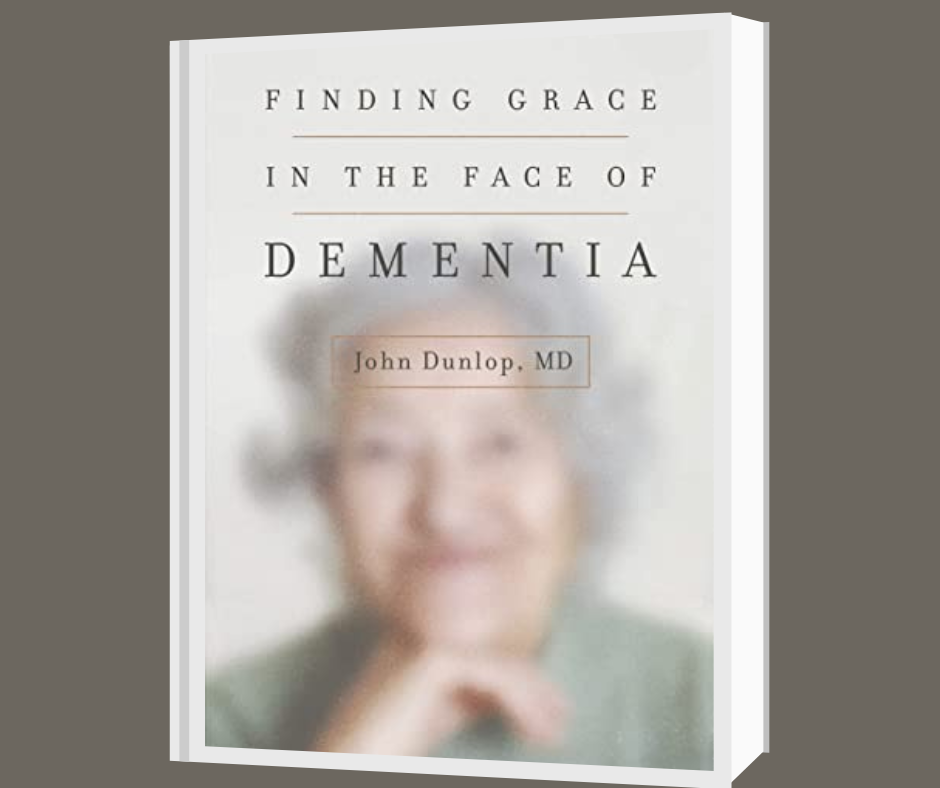Book Reviews
Finding Grace in the Face of Dementia, by John Dunlop, M.D. | Book Review by Rosa Byler

Medical advances in the last century have solved many life-threatening problems and lengthened the normal lifespan in developed countries. However, the assortment of diseases classified as “neurodegenerative dementias” are on the increase, with no treatment or cure in sight. Finding Grace in the Face of Dementia is the product of one doctor’s quest for ways to honor God and respect the dignity of persons with dementia. As a geriatrician with many years’ experience caring for patients with dementia (including both of his parents), Dr. John Dunlop is well-qualified to explore its physical, emotional, and theological implications.
Dunlop’s goal is to provide not only a “theological lens” through which to view dementia but also practical ways to demonstrate Christlikeness in the care of sufferers. Having observed exceptional care given by both Christians and unbelievers, he notes that frequently the medical “right way” is consistent with Judeo-Christian values; yet Christians have access to the additional “resources” of the Holy Spirit, prayer, and the church.
Dementia may seem a new and frightening category, but Dunlop places it into perspective along with other woes in the larger story of creation, the Fall, and the sovereignty of God. He reminds us that God “takes some of the most difficult circumstances of life and transforms them for His own purposes (25).” God’s goodness and His role in suffering are recurring themes throughout the book.
Without losing the lay reader in medical terminology, Dunlop defines the different types of dementias and their first warning signs. The age-related conditions of depression and anxiety often mimic the symptoms of dementia—and while early diagnoses of true dementia are sometimes beneficial, he says that they may also cause needless stress, since there is no known cure. Medication and simple lifestyle changes can help to reduce the effects of dementia in its initial stages and improve quality of life.
How does it feel to have dementia? Writing from a patient’s point of view, Dunlop lists some of the emotions he has observed. Dementia causes frustration, loss, confusion, fear, and embarrassment; visualizing our own reactions to these should help us to relate to patients with compassion and understanding. He describes practical ways to show kindness and consideration, many so simple that we would not even think of them as helpful. Those with severe dementia are frequently unable to express themselves, but Dunlop says they still enjoy “tasty food…good aromas, beautiful scenes…” and closeness and contact with people. (70)
The disease’s toll on caregivers, particularly spouses and children, is heavy. In addition to not recognizing their loved ones, people with dementia often experience anger, sleep disturbances, and loss of inhibitions, to name just a few. Dementia creates mental, physical, financial, and emotional stresses, and it is often hard for caregivers to find respite care. Several chapters describe these difficulties and potential solutions.
“What Should the Church Do?” suggests the customary prayers, visits, and phone calls but also recommends “establishing Christians firmly in the practices of faith…proactively teaching a theology of suffering…providing spiritually for those with dementia…[and] caring for caregivers (pp. 142-152).” True stories add interest throughout the book: there are numerous stand-alone illustrations as well as the continued story of one couple from among Dunlop’s patients. “Dave” developed dementia in his sixties; Dunlop outlines the progress of the disease and “Denise’s” coping strategies.
“End-of-Life Issues” points out that modern medical trends sometimes aim to sustain life at any cost, even the patient’s comfort. Referencing such aids as dialysis and feeding tubes, Dunlop suggests holding in tension Scripture’s two “seemingly conflicting ways to look at death”: as an enemy, or as a force over which to take dominion by reasonable means. (168) Families need to discuss not only the goals of care (which he categorizes as curing, stabilizing, or preparing for death) but living wills and “do not resuscitate” orders. He concludes with a letter to his family expressing his own preferences in the event of dementia.
This is an outstanding book, providing medical instruction, scriptural comfort, and practical help in an easy-to-read format. Recommended reading for teenagers and upwards!
Great Review! I am anxious to read it.
Thank you! ~ Kim